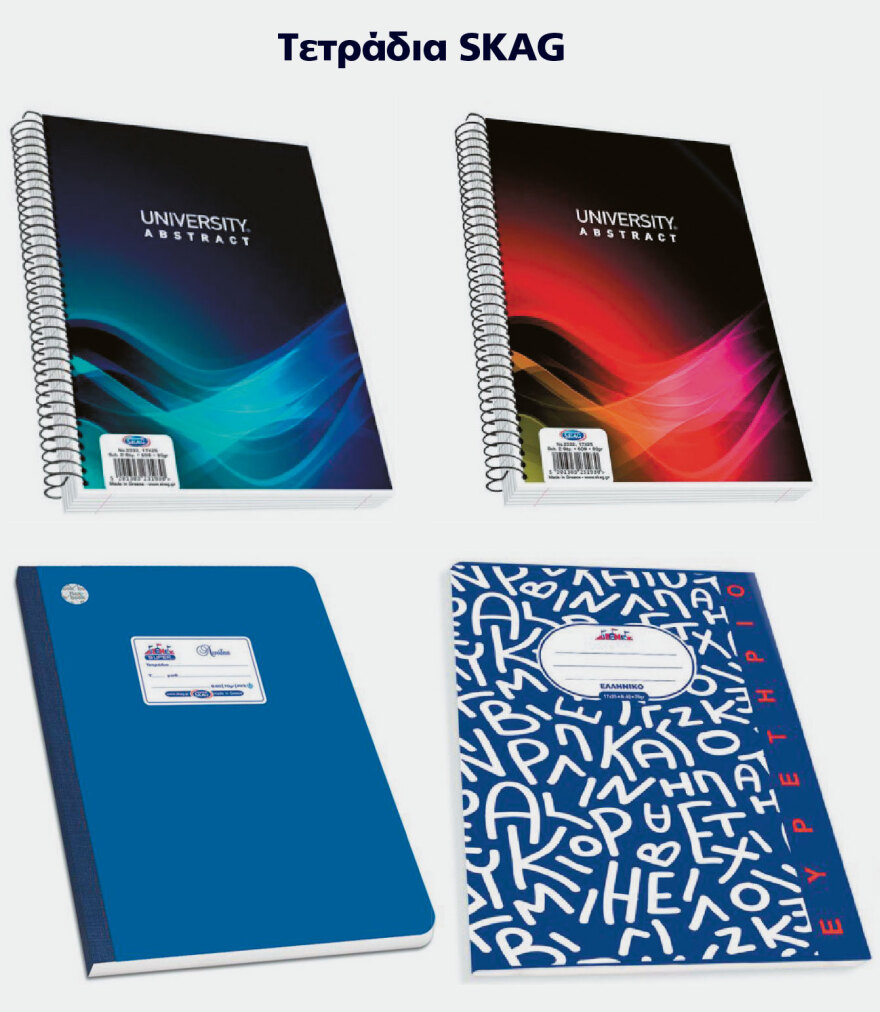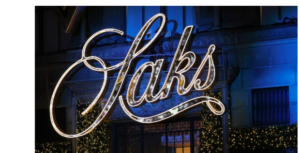Vividly reminiscent of David’s battle against Goliath! On the one hand, the SKAG family business, SKAG, has been identified with school notebooks in its almost 70-year history with an annual turnover of some 8.5 million euros. On the other hand, Jumbo, owned by the dynamic entrepreneur Apostolos Vakakis, a company that has managed to spread so much in many different parts of retail that it now constitutes an entire category of activity and a turnover of more than 1 billion euros a year!
In a legal thriller case that has been going on for nearly seven years, the Skagia family is seeking universal vindication in its claims that its former client had duped almost all of its key products, selling them as cheap Chinese imitations of its notebook series, while claiming compensation for lost profits of €2 million.
On the other hand, businessman Apostolos Vakakis through the lawyers of Jumbo is using the argument that SKAG is not listening to the market’s signals to adapt to the demands of the economic crisis sweeping the country and that it is “angry” because it cannot impose on the market the wholesale prices it wants to achieve.
The final decision
The solution is now expected to be provided by Areios-Pagos, which after hearing both sides, following an appeal by SKAG, is expected to give a final decision by next April in a case that also describes the great battle between “big” and “small” in the Greek market, with the latter being by definition in a weaker position to assert or protect their interests.
Transcription of trademark
The Skagia family declares itself aggrieved by both the decision of the Court of First Instance and that of the Court of Appeal, which are essentially the same. This is because they maintain a balanced position, thus giving room for both sides to be partially vindicated at different points in the dispute. In summary, it could be said that yes, on the one hand, the courts decided that there is indeed copying of the “University” mark used by SKAG since 1980 for a wide range of spiral sets (Jumbo used “University Book”), but on the other hand, they ruled that other products with well-known marks such as “International” are not subject to copying despite the great similarity of Jumbo’s products. Indeed, both courts found that the fine that the retail chain has to pay to SKAG is just over EUR 6 000 (which with interest and surcharges amounted to some EUR 10 000) and not the EUR 2 million that the retailer was seeking.
“It is a question of moral order and the proper functioning of the market,” the Skagia family says, which hopes the Supreme Court will fully vindicate it, ending a difficult struggle that began at a time when the lockouts of small retail suppliers had not yet stopped. Closures usually came through extortionate dilemmas, below-cost pricing, post-dated checks, forced product returns, and the deadlock at the prospect of a slow-moving legal process that would take years draining valuable resources. The family says they are determined, if they are not vindicated, to go to the European courts to get satisfaction.
Background
The two sides were trading partners from 2003 to 2016 when SKAG executives also found that their products were being sold together with cheap imitations in Jumbo stores, at which point they took legal action.

Information from “THEMA”, however, says that at least a year earlier, relations between the two sides had already been disrupted against the backdrop of the repayment of invoices at a time when everyone was looking for liquidity, the pressure to return products, and the new price list subsequently imposed by SKAG, which is now central to Jumbo’s arguments before the courts. These were incidents that were reportedly accompanied by a lot of tension, outbursts, and threats that seemed to calm down for the time being.
Suspension and expulsion
So when cheaper products appeared in 2016 which, according to SKAG, copied its own products, the termination of the cooperation was immediate. After a period of out-of-court protests for product withdrawal on the part of Jumbo, it filed a lawsuit opening the legal cycle of claims that has not yet been closed. Its main claim is that Jumbo violated the provisions on unfair competition and in particular imitated the trademark “University” in products it sold, even though SKAG is the exclusive owner of the trademark, as well as the distinctive features of its products, such as the layering of the “University”, “International”, “Style” series and other products (watercolor blocks, music notebooks, etc.).
In other words, it uses identical combinations of colours, packaging, and every distinctive element that has become established in the trade as a feature of SKAG products. Indeed, the well-known company claims that Jumbo’s conduct is confusing to consumers and leads to misleading consumers, as consumers may believe that Jumbo’s products are SKAG products at a lower price.
Pricing policy
On the other hand, Jumbo in both the Court of First Instance and the Court of Appeal, rejecting its opponent’s claims, focused on SKAG’s pricing policy, accusing it of failing to understand the current dire economic situation and the unrelenting Greek reality, of not listening to the market’s signals in order to adapt to the demands of the economic crisis that was sweeping the country and of being “angry” because it could not impose on the market the wholesale prices it wished to achieve. Prices that, according to Jumbo, cannot be accepted by the market because the consumer with his remaining disposable income is unable to follow them. Indeed, Jumbo, through its legal representatives, claims that SKAG is acting contrary to the free market and is trying to manipulate the market and the judiciary to obtain economic benefits at Jumbo’s expense.
SKAG, Th.K. Skagias ABEE, was founded in 1956 by Theodoros Skagias and has distinguished itself over 69 years with iconic stationery and filing products such as notebooks (International Super), themed notebooks (University) and SKAG office binders (Systems).
The company is currently managed by the children of Theodore Skagias. The president is Mr. Kostas Skagias and the managing director is Mrs. Poppy Skagias. The company today with 103 employees and a modern privately owned industrial unit of 24,000 sq.m. in Kryoneri, Attica, with storage and distribution facilities, is the first and highly competitive choice for domestic production. At the same time, since 1990 until today, it has been exporting to European and Middle Eastern countries. From 2023, the company is expanding its range of activity to keep up with the changes brought by technological developments, modern needs, and the major problem of under-generation in the country. In this context, it has recently entered the field of digital printing and gaming. Its sales in 2024 reached 8.5 million euros.
Jumbo, on the other hand, which just last week announced the distribution of an interim dividend to its shareholders of EUR 63.5 million, has a track record of almost 40 years. Founded by Apostolos Vakakis, today it has a large network of stores throughout Greece and other European countries, developing a strong presence by offering a wide variety of products at cheap prices. The vast majority of its products are imported from China. The Jumbo Group, listed on the Athens Stock Exchange, currently employs over 7,200 people.
The company, which is currently listed as 7,727,000 employees, is based on 7,000 employees.
Ask me anything
Explore related questions





